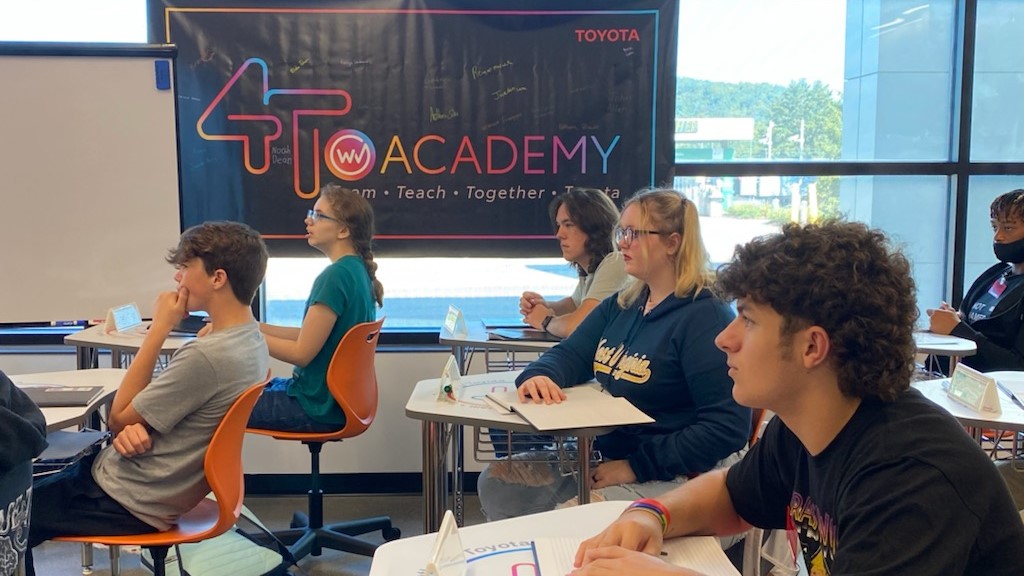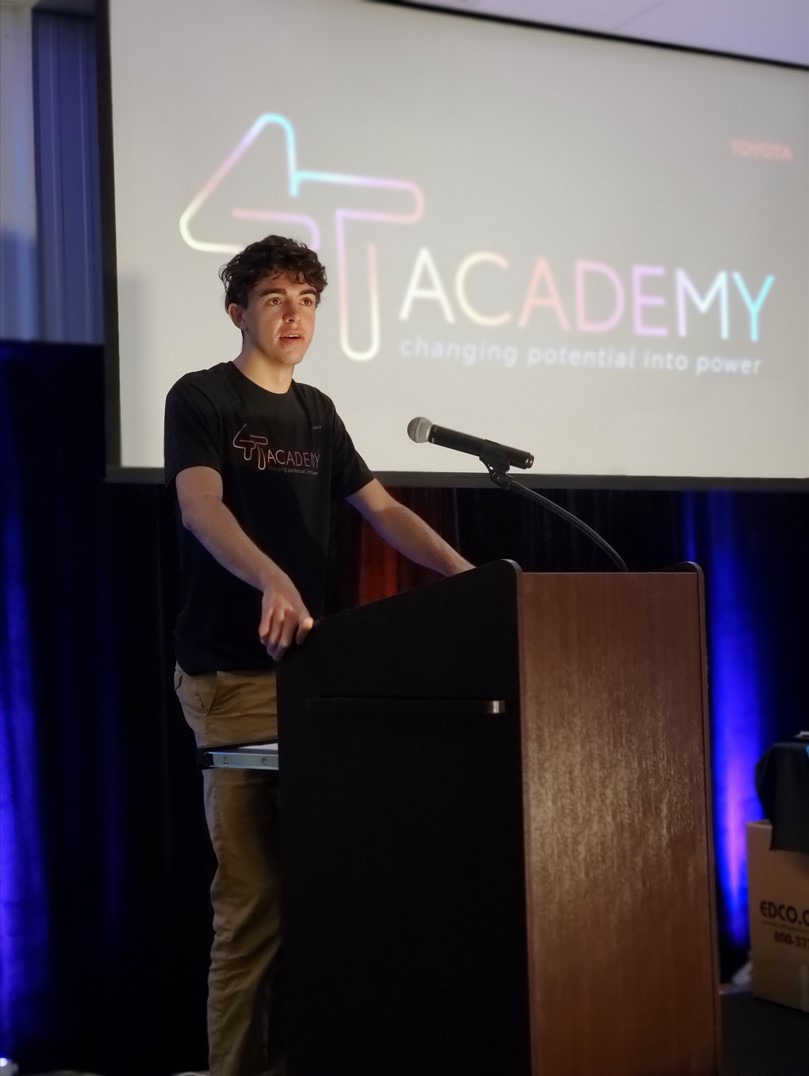
“The truth is that any company can benefit from this. I’m working with companies that have 25 employees all the way up to Toyota Motor Manufacturing Indiana which has over 6,000.” So said Lisa Deck, the program manager of education and workforce for Purdue University’s Indiana Manufacturing Competitiveness Center (IN-MaC).
This latest endeavor is called Pathway Systems, a partnership between communities, their nearby industry leaders, and school districts. Pathways began in Indiana but is in the process of making its way to Mississippi, West Virginia and beyond.
Deck states that the Pathways are run by “academies” established within a particular school district. These academies make connections between students and companies in the area, which may be large manufacturing operations just as easily as veterinary care or medical offices.
“The key to this is bringing together stakeholders in the community, local industry and in education.” Each Pathway is tailored to the particular community, and Deck wants participating organizations to be “ready and willing to look at innovative ways to help students enhance their academic, technical and professional skills so they can make informed career choices.”
Many such programs assign adult industry experts as mentors to students, or creating workshops within the school to simulate a manufacturing plant. But Deck (who had a 13-year-long stint in Indiana’s industrial sector before coming to IN-MaC) has worked to ensure that Pathway Systems provide much more.
“[The Pathway System collaborators] provide students with a paid internship and a supervised training regimen for work-based learning,” said Deck. “This isn’t job shadowing.”
As juniors, participating students begin with one day a week of supervised, on-site job training. By the time they’re seniors, they will be up to three days a week on the floor of the jobsite. By their last semester, their paid internship requires the students to be present for four days a week, where Deck said “they’re treated just like a full-time employee.”
Some of IN-MaC's biggest industry partners have taken the preexisting partnership and stepped it up an additional degree. The longest-standing collaboration is between IN-MaC and Toyota Motor Manufacturing Indiana, which successfully uses Pathway Systems to recruit high-performing manufacturing students directly from the school districts surrounding their base in Princeton, Indiana.
In order to make the most of this newfound talent pool, they have crafted the 4T Academy, which includes a full suite of courses centered on work-based learning opportunities designed to culminate in an engineering career. IN-MaC was even invited to form similar Academies at Toyota centers in Mississippi and West Virginia based on the success of the Indiana original.
 “Every industry partner, and for that matter every county have totally different cultures,“ Deck said. ”So we build out each Pathway individually to fit their needs.”
“Every industry partner, and for that matter every county have totally different cultures,“ Deck said. ”So we build out each Pathway individually to fit their needs.”
This individual model is ideal, given the fact that over 20 industry partners and employers are now involved in the Pathway System. A common theme among each partner (employers as diverse as Lakeside Book Company in Crawfordsville, Ind., to West Virginia University Medicine) is that they encounter similar structural problems in the workforce that a finely-tuned program like IN-MaC’s Pathway System can help solve.
“We want [outgoing seniors] to know what every occupation in an industry looks like. Then they can say, ‘Hey, I think I actually know what I want to pursue,’” said Deck. ”But to make sure that happens, we have to be part of a paradigm shift away from our current system. [Students] get career information, don’t get me wrong, but most communities aren’t immersing them deeply in their options.”
In a prior press release regarding Pathway Systems, IN-MaC more explicitly stated that this lack of immersion had a ripple effect. The prior status quo led to a situation where “[employers were] struggling to find qualified team members in multiple job categories.”
Eli Lilly and Co. CEO David Ricks voiced similar concerns last year. Ricks warned the Economic Club of Indiana about statewide issues regarding "lagging educational achievement," "workforce preparedness" and "re-skilling," which may lead industry away from Indiana in the future.
“The sole reason I do this work is because I am so passionate about closing that skills gap,” said Deck. “These bigger-picture issues are exactly what we’re trying to fix. We want to have a voice of industry present during community discussions so that we can ask, ‘What makes for an ideal candidate at your organization?’ Then we can take a step back, and embed those skills in the training the students are getting.”
For the most part, students who complete their Pathway find the companies to be eminently grateful. Deck said that companies not only hire on the vast majority of these students, but that they often seek to offer them support and benefits that will keep them around. “With the 4T Academy and Mississinewa Community Schools' Pathway System, they've reported to me basically a 100 percent success rate with students. They’re telling me that [our students] are two to three years ahead of a person they would hire off the street.”
When asked about whether the Pathways system can continue to scale up, Deck was optimistic: “I don’t plan on stopping any time soon. I get a phone call just about every week from a manufacturer or a school that wants to do this.”
About IN-MaC:
IN-MaC was founded alongside faculty and administration within Purdue’s Polytechnic Institute and the College of Engineering. It provides programs and services to enhance the talents and capabilities of Indiana’s present and future workforce by facilitating connections between educators and industry to catalyze the formation of near-term and long-term skills in a highly accessible manner across Indiana. IN-MaC supports a variety of STEM-type, skilled trades, degree (associates and undergraduate) and certificate programs.
Additional information
